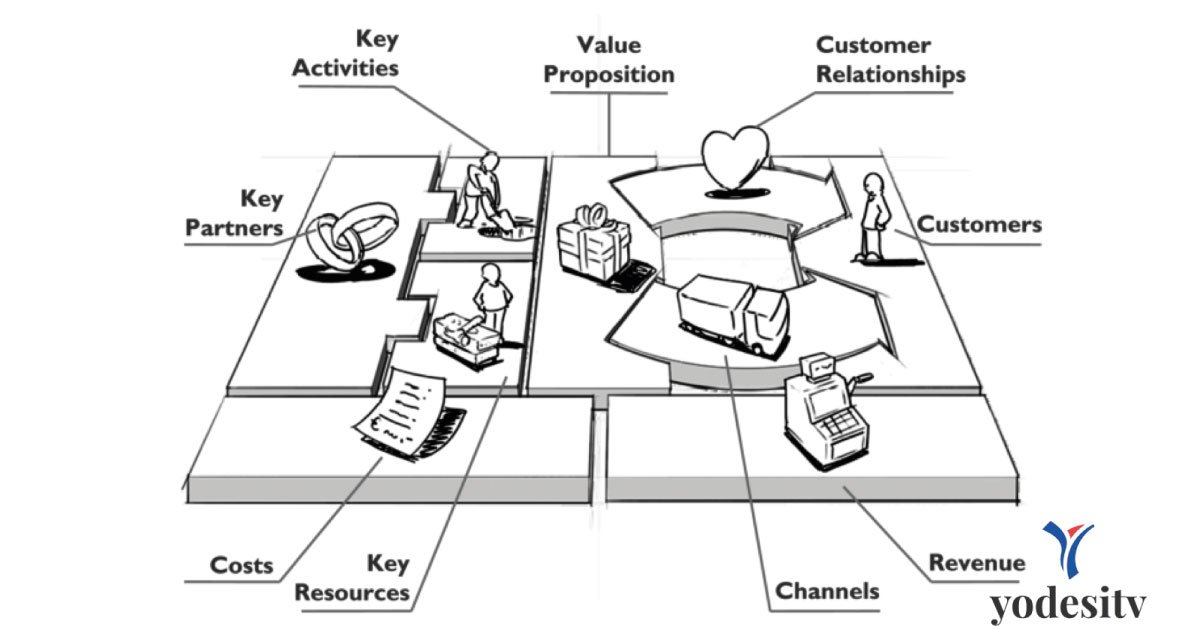Intro Network Security for Small Businesses
Effective network security continues to be an essential need for companies looking to prevent significant data breaches and ensure that sensitive information is accessible only by authorized personnel. Modern businesses rely heavily on digital information management, increasing the risks they face from a rising number of cyber threats. Small businesses often operate with a greater degree of vulnerabilities than larger enterprises due to their lower focus on the need for cybersecurity. A significant percentage of small businesses experienced a cyberattack costing them an average of $4,628 annually.

Company reputations often hang in the balance depending on the level of their investment in network security solutions. A considerable number of small business owners feel that their lack of resources and information is a significant barrier to managing network security. Another worrying trend is that most entrepreneurs believe their small business is possibly too small to warrant a cyberattack.
A troublesome issue in the network security landscape of small businesses is financially maintaining their IT solutions. There is a common misconception among small business owners that network security is a luxury and not an essential need for everyday operations. A significant percentage of small business owners do not give much attention to antivirus updates. Many small business owners are hesitant to delve deep into some security protocol measures to keep their software updated.
The shift in small businesses entering a new market of operations that go digital is met by a wave of potential network security solutions that pertain to their size and vulnerability footprints. When thinking about network security, small businesses should prioritize addressing cyber defense from two different angles. Most business owners think they are protected by a single standard device. Business owners should also try their best to allocate resources to train employees on security concerns and not distribute passwords to networks that have high security clearance meant only for senior managers. The fluctuating security landscape has given birth to an IT market catering to a wide variety of small business applications all over the world.
Common Cybersecurity Threats for Small Businesses
When thinking about your network security solutions, it is imperative to consider what threats you are trying to protect against. The most important thing to know concerning small business cybersecurity is that the threats are applicable. You can take steps to protect your business, but your organization has to be aware of the threats. Small business cybersecurity risks don’t look the same as what a major corporation faces. However, there are common themes. – Phishing: Scammers will send official-looking emails or set up websites that mimic actual companies. A growing number of these attacks target specific employees.
The thief might take a week or two to compile considerable amounts of information on a person before attempting to trick them into providing company information. Their goal is to gain access to money and employee credentials. – Ransomware: These attacks are numbers-based, not quality-based. In other words, attackers know that a certain number of people out of every 100 are going to click on a corrupted webpage.
Whether or not they receive valuable information is mostly pure luck. – Malware: While every organization is threatened by significant, noticeable attacks, the majority of malware infections occur in businesses with 100 or fewer employees. This is because many of these companies may not have the time or resources to protect their data, making malware attackers more likely to target them.
If your business has 250 or fewer employees, then you might be eligible for Cyber Essentials. This is a scheme designed to help you decide the basic technical controls that would help protect you against common cyber threats and demonstrate your commitment to cybersecurity. Ninety percent of the cyber attacks could have been prevented by Cyber Essentials. Only twenty-five percent of those attacked victims were awarded the certification.
Key Considerations for Choosing Network Security Providers
When choosing a network security solution provider, there are several key considerations that should guide the decision-making process for small businesses. The first is to examine the security provider’s track record of providing network security solutions for the small business market, as well as how many networks they have secured successfully. It is also important to determine if the provider has a strong understanding of small business-specific security needs. This can include evaluating their resources, toolsets, and documentation that are available specifically for a small business.

Another consideration is whether it provides the right mix of affordability and protection, which matches your budget with the necessary protection. This is extremely important, as many small businesses do not have large concentrations of resources or large budgets to allocate towards security. Finally, supervising the technical assistance provided by the seller is also significant.
Especially in smaller environments, where technical expertise may not be as robust, this is especially crucial. Other considerations include the scalability and skill level to modify technology to fit the changing needs of the business in the future, how well the service provider integrates with installed systems and tools, vendor facility services in addition to software solutions, and the cost benefits as opposed to another pricing model such as total cost of ownership over time. The variable pricing models available are managed security services, software-as-a-service, and on-premise solutions.
Top Network Security Providers for Small Businesses
In our research, we’ve found several companies that offer network security solutions specifically tailored to small employers. We have judged our top picks based on factors like reputations, price points, and the services available. There are many security companies out there today, but there are only a few options that cater to small businesses. It is important that when looking for a network security provider, an employer takes a look at how the provider solves the problems they are experiencing and the areas in which they have expertise.
Most employers do not realize they were breached until a significant amount of time has passed. If you combine solutions with an appropriate network security provider, your options for catching an intruder can decrease. For these employers, we would recommend using a specific provider for their endpoint security solution.
For any employer, a safe network begins with education. This service offers a Learning Management System and recurring scheduled education and phishing attempts. If every company in the world provided educational services, we would have fewer people opening email scams and make a hacker’s job that much more difficult. Should the criminals still get through security with an educated human, we researched companies that offer a fully managed security service all the way up to availability. With several options, we hope you will be able to find a solution that fits your organization.
Provider A
Provider A might be the first network security solution for small businesses that comes to my mind off the top of my head. The company has several levels of services, but I only evaluate the core component that Huntress offers. Provider A offers the services that you would expect from a high-quality security threat detection service. For instance, they detect threats on customers’ networks using dozens of commercial, proprietary, and open-source tools. They are also a Certified Incident Response Organization, so they will work directly with your company in order to contain and neutralize security incidents should they arise. They also provide an ounce of prevention in the form of security policy development and other security measures.
One thing about the company that truly separates it from other security service providers is its focus on small businesses. The companies it started with were small and often had limited technology budgets. Provider A would help devise a manageable balance between their security needs and their finances. There are enough positive customer testimonials that I can tell you without reservation that you will not be the only satisfied customer if you choose to go with Provider A.
This is the kind of company Provider A usually does business with. In contrast to other network security solutions for small businesses, they are a good option if you are a small business looking for a company that has experience working with others like you and is sensitive to your budget. The amount of large-scale innovative technology in Provider A’s security service is really going to depend on what’s available at the NOC. However, Provider A does use a range of other security-related tools, and even if they aren’t as cutting edge as the technology used by other providers, they can still deliver a valuable service.
Provider B
II. Provider B
Provider B has a firewall in the company’s security suite of tools and products, which range from a firewall to endpoint protection, file sharing, password management, and more. They aim their products and services specifically at small businesses and state, “We have spent thousands of hours intensely focused on one goal: building out high-quality, secure, and unique infrastructure to protect you against modern digital threats. We know how to handle the unique threats that small businesses face. And we are ready to fight those battles for you!”
In customer reviews, both customers mentioned that they found out about Provider B and that they use them for a variety of small business services, such as providing the server to the firewall. One of the two reviews appreciates their customer support, while another says they are a bit newer to the business but “miles above” the alternative based solely on user interface. The customer reviews also state they had some issues to address with firewalls, and it seems that the support from whom did help find a solution.
The provider’s support and service teams have a 78% satisfaction rating, and customer reviews suggest they are reliable. Pricing is not available on Provider B’s website, and as there is no checkout/reseller option, it seems price might have to be discussed with the software provider. However, it is mentioned in one of their reviews that Provider B has a program or special pricing for small businesses, but there most likely would be a discount for purchasing as a package. They also offer NetVisr as a product, which includes performance and traffic graphing.
Provider C
Provider C is the leading provider of network security for small businesses. We believe in providing the highest quality services for your business, and we know that one-size-fits-all, cookie-cutter services do not meet everyone’s needs. That’s why we offer an array of services to meet your business concerns. Whether you want us to manage your security services, guide you through the compliance maze, or help educate your employees, we have a solution to meet your needs.
Provider C is a managed security service provider that focuses on small businesses, recognizing their need for strong security practices, but also their budget limitations. This is our calling card, as demonstrated through our testimonials and customer case studies. We have clients in many industries, including law, education, and franchises, all of whom sing our praises. We can provide a range of security services, from complete management to consulting and system design. Key differentiators include that we specialize in servicing small businesses by creating more affordable solutions and offering clients the choice of security managed services or per-project consulting.
Pricing is a one-time setup fee, plus a flat annual subscription fee determined by how many employees will be required to go through the awareness program. Customers can sign a one-year contract with a discount, a two-year contract with a discount, or a three-year contract with a discount. Customer support is available 24 hours a day, 7 days a week, through email and phone, and customers can unlock a door during business hours by providing a security code in case of missing access control credentials. A warranty and guarantees are not offered. Service bundles are available.
This provider is also willing to travel to customer locations in periodic states such as Arizona, Nevada, and Texas after preorder payment. Each state that Provider C can operate in is listed. By paying for a complete management service, small businesses with between 10 and 500 employees can take advantage of enterprise-level solutions to protect themselves. Service bundles are available.
The simple full email management plan is currently under the Gold Bundle and also includes a moment monitoring bundle as Provider C’s leading offering. A technician will install a security monitoring device on a customer’s network for a setup and labor fee, providing up-to-the-moment monitoring and recovery management services without having to purchase the simple full email management plan. All Provider C services are free of charge for the first 30 days with zero setup fees.
Case Studies: Implementing Network Security Solutions in Small Businesses
As exemplified by the updated cybersecurity framework and law enforcement awareness publication, companies face a perilous prospect without shoring up network security—whether due to start-up status, inadequate resources, or both. Consequently, bad actors revel at the prospect as a potential magnet. This section shares small business scenarios and compares them to better illustrate decision-making that seems alike yet is actually quite different. Small business owners encounter various options while navigating the decision to bring cybersecurity into their network. Whether you are in retail, services, or providing products to customers, there is a mix here.
ABOUT THE CASE STUDIES The following section includes actual cases illustrating decisions to invest or not to invest in network security technologies for intra/interstate small businesses’ expansion and diversification. The scenarios within each case study were introduced by the small business owners/managers in interviews and are documented herein. Each case study features the actual small business report on their decision and subsequent adaptations because of their decision, their lessons learned, and their continued improvement plan.
This section concludes with a take on the four small business cases, not only how they compare to law enforcement training but also as a tool to potentially reach other victim small businesses on alternatives for network security that suit their scenarios. In some instances, small businesses elect to keep their results and reviews of their aftermaths to themselves. The conclusions drawn and adaptations made are more important than the details; their influence, however, cannot be left out of the equivalent of TLAs in deployment.


